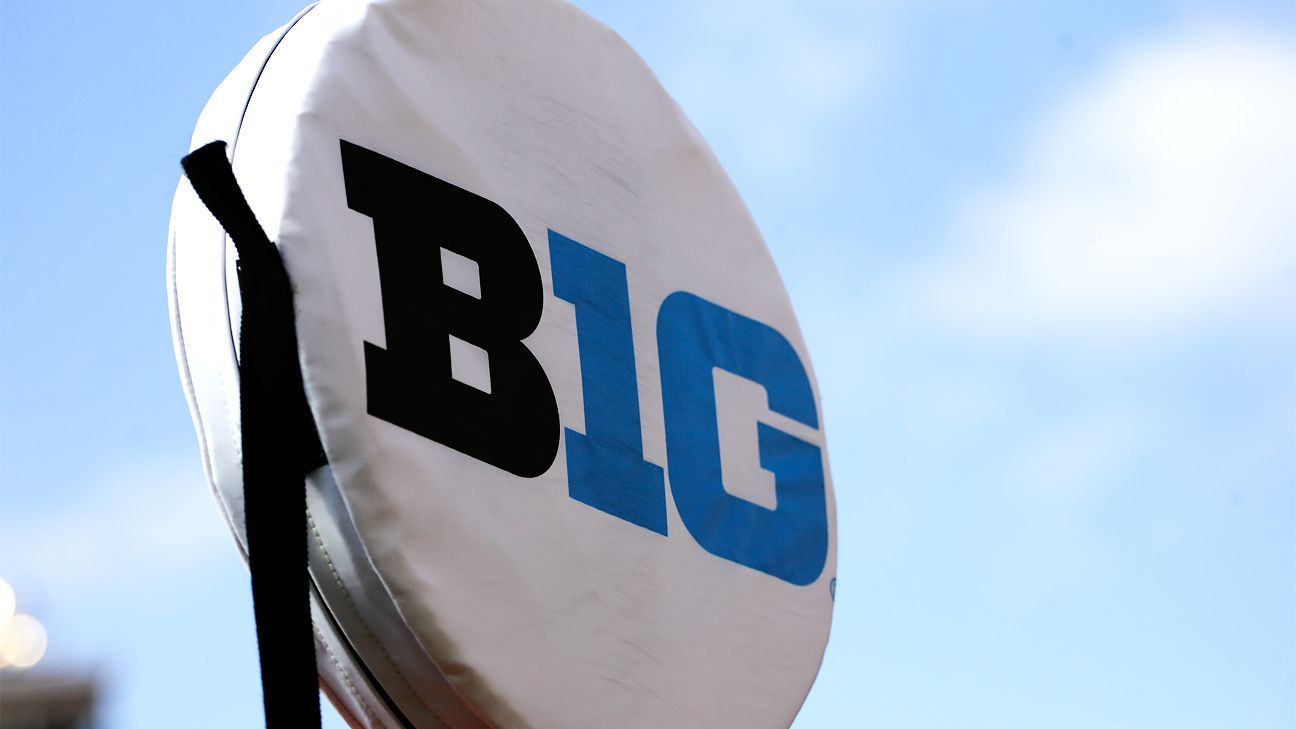ANN ARBOR, Mich. — The Big Ten Conference on Tuesday rejected a claim by a University of Michigan regent that commissioner Tony Petitti threatened to punish the school if it refuses to support a plan that would clear the way for $2.4 billion in private investment in the league.
Mark Bernstein, chairman of Michigan's board of regents, told The Associated Press this week that Petitti had attempted to “put pressure” on Michigan in a move that he said “calls into question his continued leadership of the Big Ten Conference.”
“The commissioner of the Big Ten conference has threatened the University of Michigan with sanctions if we do not approve this agreement,” Bernstein said, declining to provide details. “No one gets into the University of Michigan… ever.”
The Big Ten disputed the accusation that any school is being forced to endorse the plan since discussions began last year.
“After receiving interest from third-party investors, we formed a working group chaired by then-President (Santa J.) Ono of the University of Michigan to explore and evaluate all options on behalf of our members and the more than 12,000 student-athletes of the Big Ten,” said Maryland President Darryll Pines, chair of the Big Ten Council of Presidents and Chancellors. “Since we first met in 2024, this has been a collaborative, fair and thorough process that included the University of Michigan. Any other characterization of the work of the COPC and the conference office is inaccurate.
“Under Michigan's direction,” he added, “the conference continues to work with a consultant retained by Michigan to evaluate the transaction.”
Like all major conferences, the Big Ten has been exploring new revenue streams to help its 18 member schools pay the bills in the new era of college athletics. Each school that opted into the House agreement can share up to $20.5 million this academic year alone with its athletes, a figure that will increase in coming years. There have already been some dramatic changes on some campuses.
Private equity stakes have been a controversial topic in schools and conferences, with critics saying it would add concerns about profits along with concerns about who has control. The Big Ten Council of Presidents and Chancellors began talks in July with UC Investments, which manages the University of California's public pension, about the possibility of establishing a business entity, Big Ten Enterprises, to generate money for the 18 schools through 2046.
UC Investments would give each school a share of the $2.4 billion upfront in a tiered distribution system, in exchange for a 10% cut from Big Ten sponsorships and media rights.
Like Michigan, USC is against the agreement as it currently stands. USC athletic director Jennifer Cohen noted that the agreement calls for revenue to be “distributed unequally among members” and was lukewarm in a letter to boosters last week.
“We greatly value our membership in the Big Ten Conference and understand and respect the bigger picture,” he wrote. “But we also recognize that the power of the USC brand is far-reaching, deeply engaging and incredibly valuable, and we will always fight for what is best for USC first.”
UC Investments Chief Investment Officer Jagdeep Singh Bachher said Monday that conference leaders, including Petitti, have shown “exceptional leadership” and that “recent misinformation has distorted some aspects of their effort.” He noted that the “unity” of the 18 member schools will be “key to the success of the Big Ten Companies.”
“We also recognize that some member universities need more time to evaluate the benefits of their participation,” Bachher wrote, without naming any schools. “UC Investments also requires some additional time to complete our due diligence as recent events unfold and we continue to participate in the conference.”
Sen. Maria Cantwell, D-Wash., asked Congress' Joint Committee on Taxation for an analysis of several key issues facing college sports, including how a deal to attract outside funding to athletic departments could affect their tax-exempt status.
“Legitimate questions have been raised about whether it is time to rethink the tax-exempt regime under which college sports currently operate,” Cantwell said, returning to an issue he raised with Big Ten leaders last month.
The American Council of Trustees and Alumni also expressed reservations about the Big Ten schools approving such an agreement without input from their boards of trustees.
“This is not how responsible governance works,” Council President Michael Poliakoff wrote in an open letter last week.
Bernstein agreed.
“It also raises very important and pressing governance questions regarding the leadership of the Big Ten Conference and the way many Big Ten universities make decisions,” he said. “It is my well-informed impression that most presidents, chancellors and boards of trustees of the Big Ten universities have not fully evaluated this agreement. If they did, they would not support it in its current form.”
Regent Sarah Hubbard said the Big Ten has not given the school a deadline to vote on the proposal, and another regent, Jordan Acker, said he didn't like the idea.
“For the richest conference in college football to join private equity is not, in my opinion, a positive thing for the University of Michigan,” Acker said.
Bernstein went a step further, calling the deal “reckless” and “shortsighted.”
“The process has failed to fully evaluate alternatives that address the real challenges facing many Big Ten athletic departments,” he said. “We recognize that the financial model for most conferences and athletic departments is broken. A private equity bailout is not the way to fix the systemic problems facing college athletics right now.”












